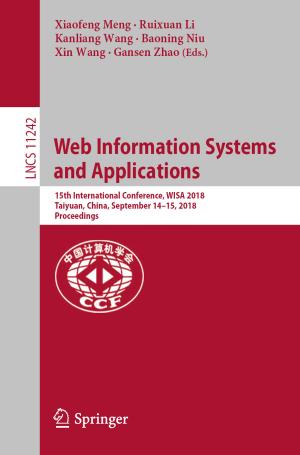Fast Electrochemical Impedance Spectroscopy
As a Statistical Condition Monitoring Tool
Nonfiction, Science & Nature, Science, Chemistry, Physical & Theoretical, Technology, Power Resources| Author: | Pavle Boškoski, Andrej Debenjak, Biljana Mileva Boshkoska | ISBN: | 9783319533902 |
| Publisher: | Springer International Publishing | Publication: | May 7, 2017 |
| Imprint: | Springer | Language: | English |
| Author: | Pavle Boškoski, Andrej Debenjak, Biljana Mileva Boshkoska |
| ISBN: | 9783319533902 |
| Publisher: | Springer International Publishing |
| Publication: | May 7, 2017 |
| Imprint: | Springer |
| Language: | English |
This book offers a review of electrochemical impedance spectroscopy (EIS) and its application in online condition monitoring of electrochemical devices, focusing on the practicalities of performing fast and accurate EIS. The first part of the book addresses the theoretical aspects of the fast EIS technique, including stochastic excitation signals, time-frequency signal processing, and statistical analysis of impedance measurements. The second part presents an application of the fast EIS technique for condition monitoring and evaluates the performance of the proposed fast EIS methodology in three different types of electrochemical devices: a Li-ion battery, a Li-S cell, and a polymer electrolyte membrane (PEM) fuel cell.
Uniquely, in addition to theoretical aspects the book provides practical guidelines for implementation, commissioning, and exploitation of EIS for condition monitoring of electrochemical devices, making it a valuable resource for practicing engineers as well as researchers.
This book offers a review of electrochemical impedance spectroscopy (EIS) and its application in online condition monitoring of electrochemical devices, focusing on the practicalities of performing fast and accurate EIS. The first part of the book addresses the theoretical aspects of the fast EIS technique, including stochastic excitation signals, time-frequency signal processing, and statistical analysis of impedance measurements. The second part presents an application of the fast EIS technique for condition monitoring and evaluates the performance of the proposed fast EIS methodology in three different types of electrochemical devices: a Li-ion battery, a Li-S cell, and a polymer electrolyte membrane (PEM) fuel cell.
Uniquely, in addition to theoretical aspects the book provides practical guidelines for implementation, commissioning, and exploitation of EIS for condition monitoring of electrochemical devices, making it a valuable resource for practicing engineers as well as researchers.















